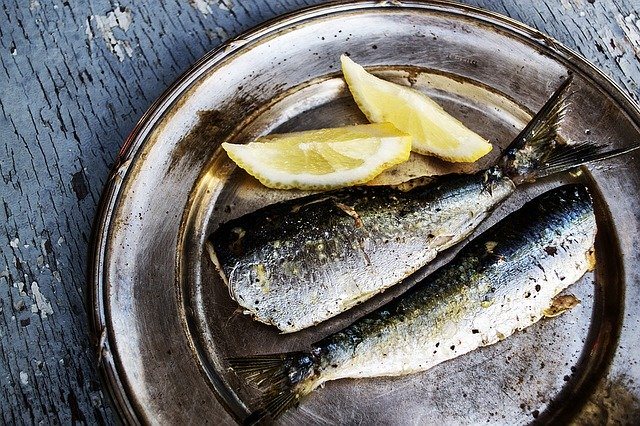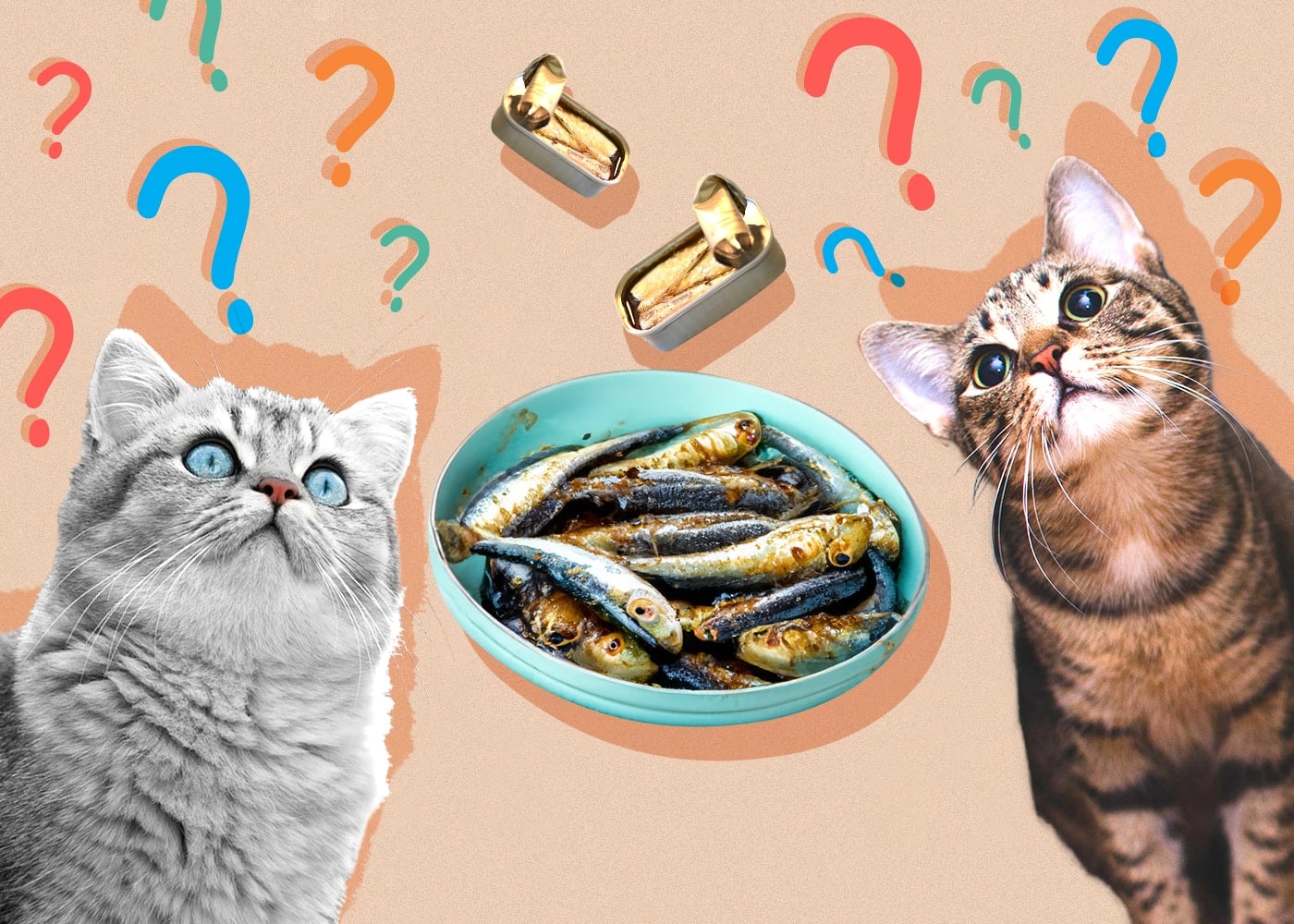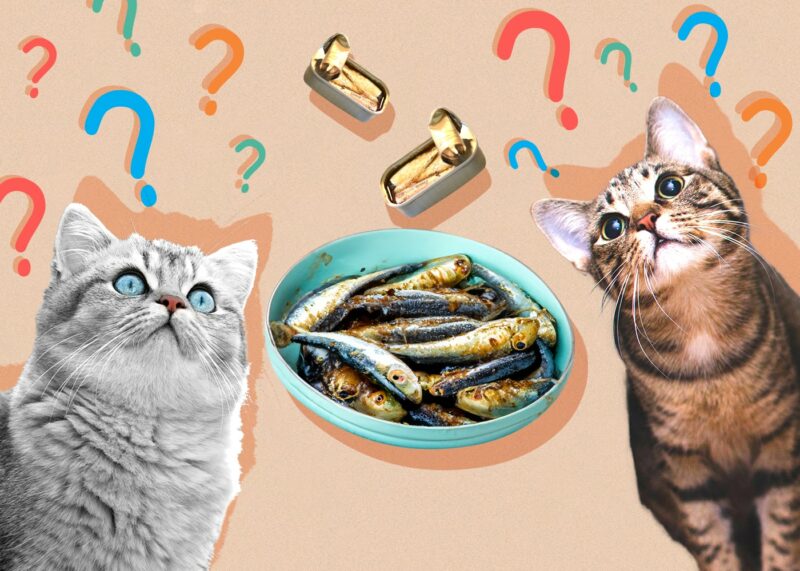Does your cat come running after the sound of a cracking can of sardines? Most felines are attracted to these tiny fish and will likely commit the sound of an opening can to memory. As you try to enjoy your snack under their prying gaze, you might wonder if it’s safe to slip them a couple of fish. Generally, yes, sardines are a safe snack that even has some health benefits for your cat. However, this is only true for plain sardines. As always, moderation is key, so you should only feed them sardines a couple times a week in addition to a balanced diet.
Are Sardines Healthy for Cats?
- Low mercury levels. Sardines actually contain the lowest amount of mercury of any fish.
- Omega 3s. These fatty acids reduce inflammation while promoting healthy joints and a nourished coat.
- Vitamin D. The sunshine vitamin gives your cat’s bones a boost.
- Calcium. Most cats are lactose intolerant, so milk isn’t a safe way for them to receive this essential mineral. Sardines are a much better choice that aren’t as likely to cause upset tummies.
- Protein. Sardines are a great low-fat, low-calorie snack that’s high in protein. That’s a win-win-win for your kitty!
- Taurine. Your cat can’t live without this amino acid, yet their bodies can’t produce it on their own. Cats are obligate carnivores, which means they must eat meat to survive. Meat such as sardines contain an abundance of taurine and other essential amino acids.

Considerations for Feeding Sardines to Your Cat
Given all the health benefits, you might wonder if there are any possible drawbacks to feeding your cat sardines. Despite the high praise, there are some possible pitfalls.
Sardines are packaged in water, brine, or oil. You should opt for the cans that are packed in water. Oil can cause digestive upset due to the fat content and can lead to excessive weight gain. Brine is extremely high in sodium. While salt is an essential compound in your cat’s diet, it can actually be toxic in large amounts. Additionally, you should make sure the sardines don’t contain any added ingredients, such as seasonings.
If you bought fresh sardines instead of cooked, make sure the fish is fully cooked and remove all the bones before serving to your cat.

How Many Sardines Are Safe for My Cat?
Sardines should make up less than 10% of your cat’s overall diet. A commercially produced cat food should provide your cat with their essential nutritional requirements. Feeding too many snacks such as sardines and other treats can take away from the calories your cat would otherwise glean from their balanced food. You should feed them only a couple of sardines at a time, no more than three times a week, in order to treat your cat while still making sure they’re receiving most of their nutrition from their food.
Thankfully, sardines aren’t as much of a worry as other fish due to their low mercury content. However, they still aren’t 100% free from the chemical, which is another reason your cat probably shouldn’t be feasting on sardines every day.

Conclusion
With a high amount of beneficial vitamins, minerals, and amino acids, sardines are an excellent health conscious snack to feed your cat. Plus, they’re highly palatable (to felines anyway). Even so, sardines should only be fed in moderation as a snack to supplement a balanced diet. Stick with plain sardines that are free from added ingredients and seasonings and avoid the brine because of the high sodium content.
Featured Image Credit: monicore, Pixabay











